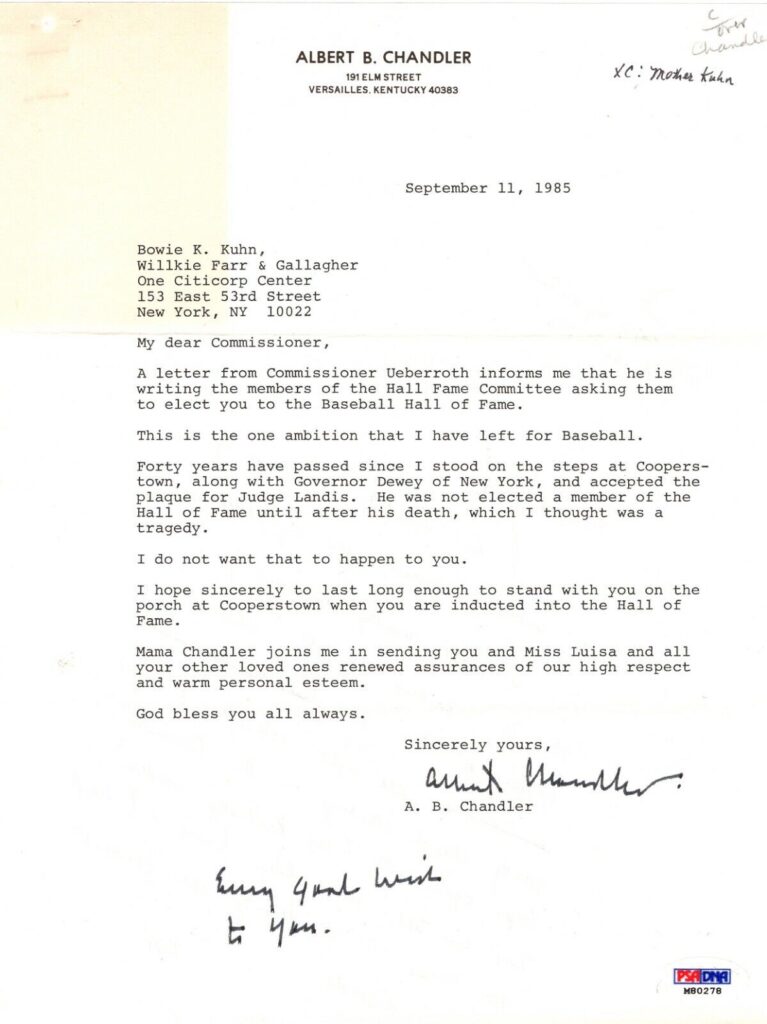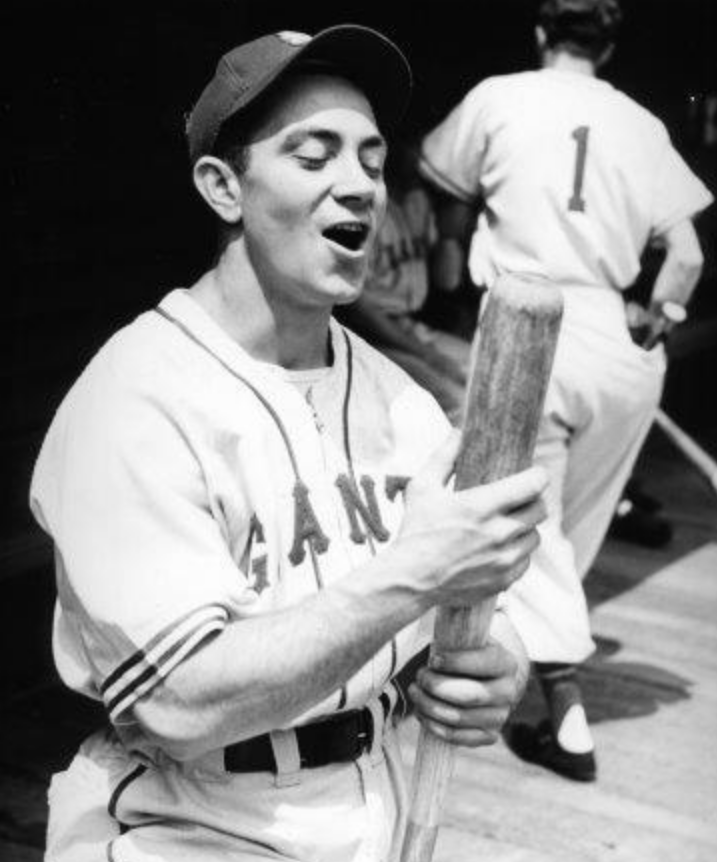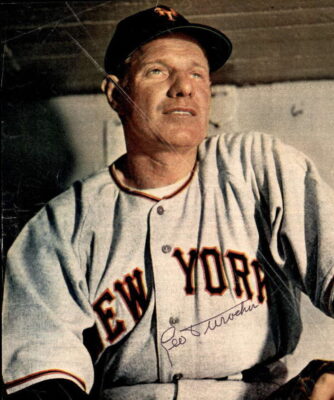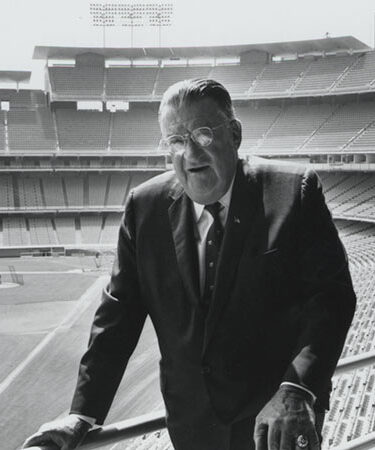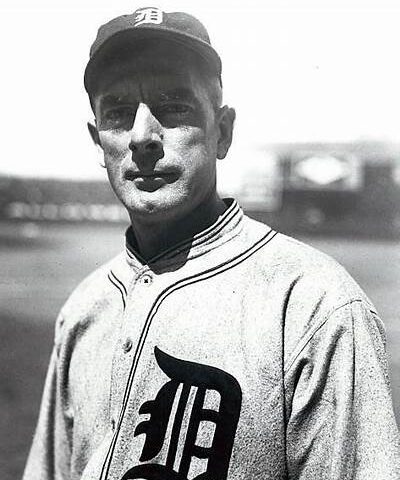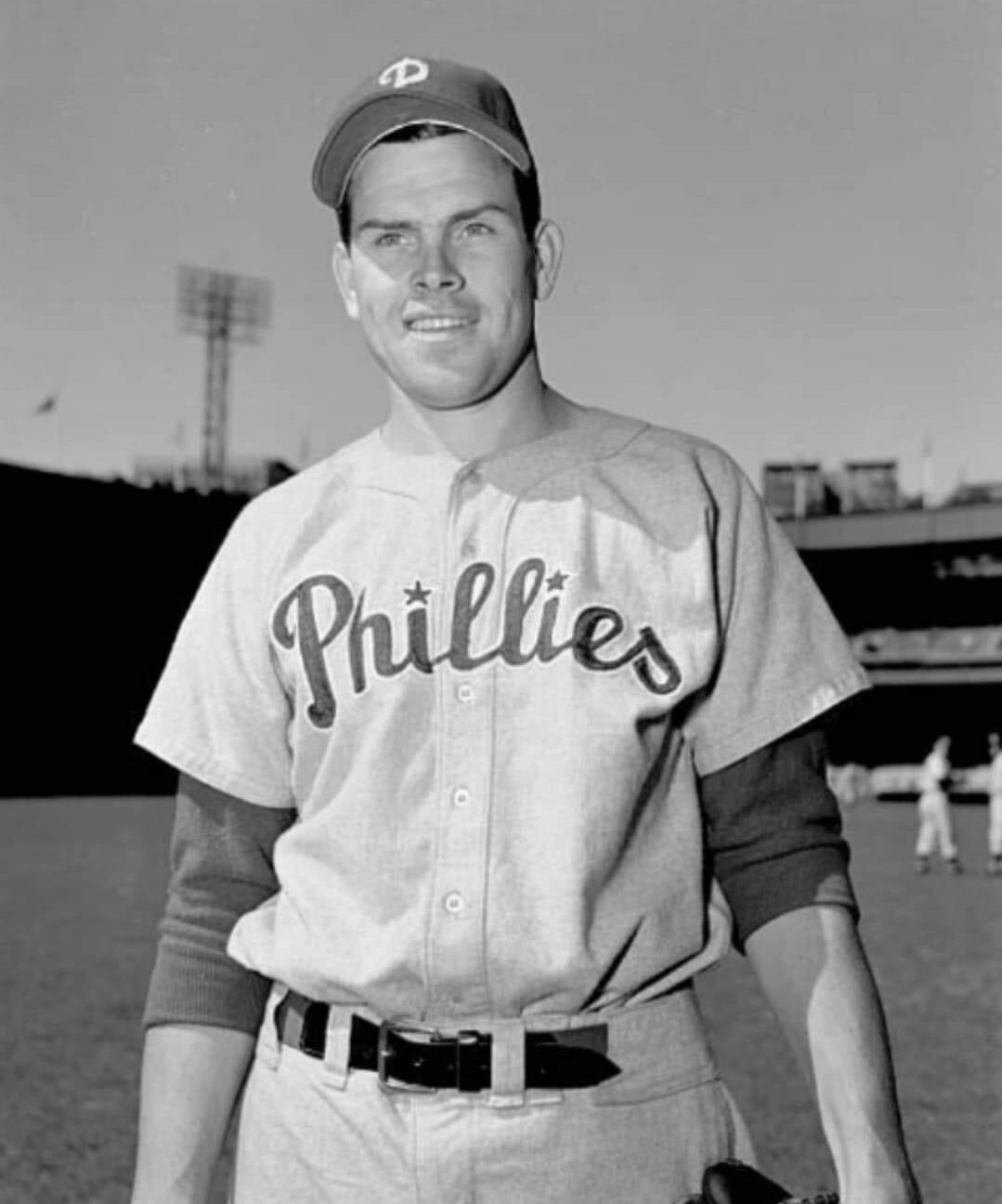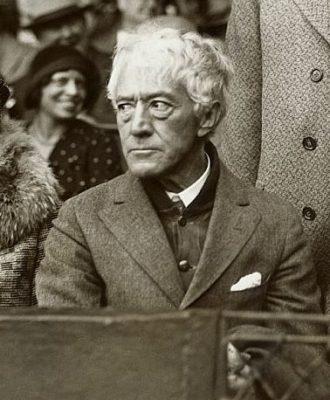Happy Chandler
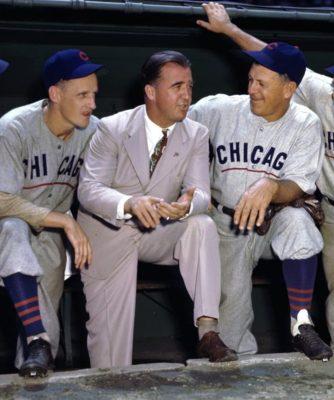
| Birthdate | 7/14/1898 |
| Death Date | 6/15/1991 |
| Debut Year | 1945 |
| Year of Induction | 1982 |
| Teams | MLB |
| Position | Commissioner |
Happy Chandler presided over MLB’s integration, suspended Leo Durocher and fought players who jumped to the Mexican League.
Leave a commentIn the collection:
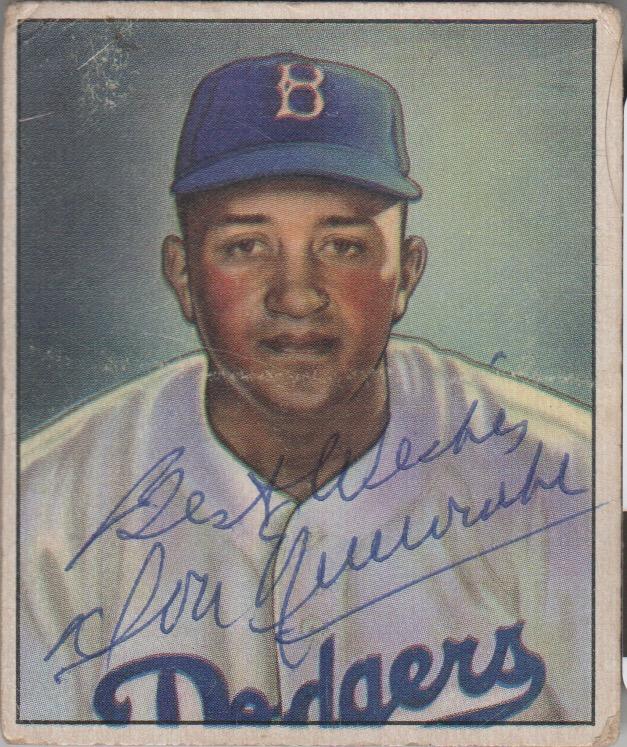
Dodger hurler Don Newcombe praised Chandler for his role in breaking the color barrier
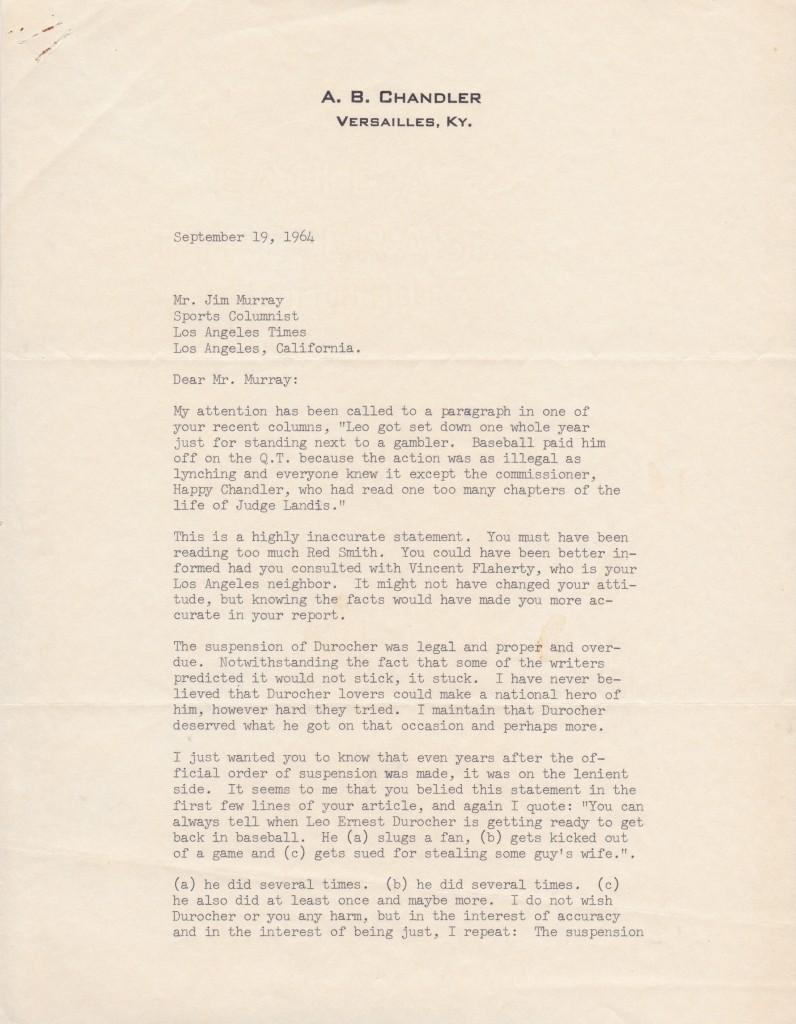
Happy Chandler goes into detail about the suspension and career of Leo Durocher
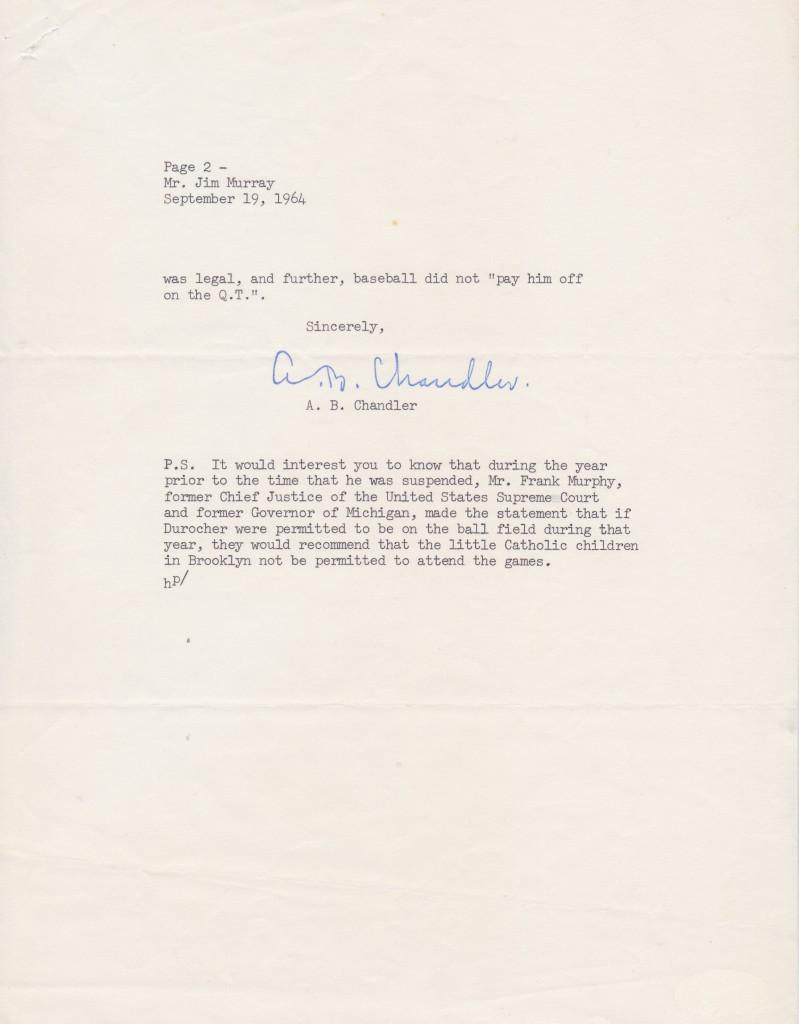
Page two of the Chandler letter about Durocher to Hall of Fame LA Times columnist Jim Murray
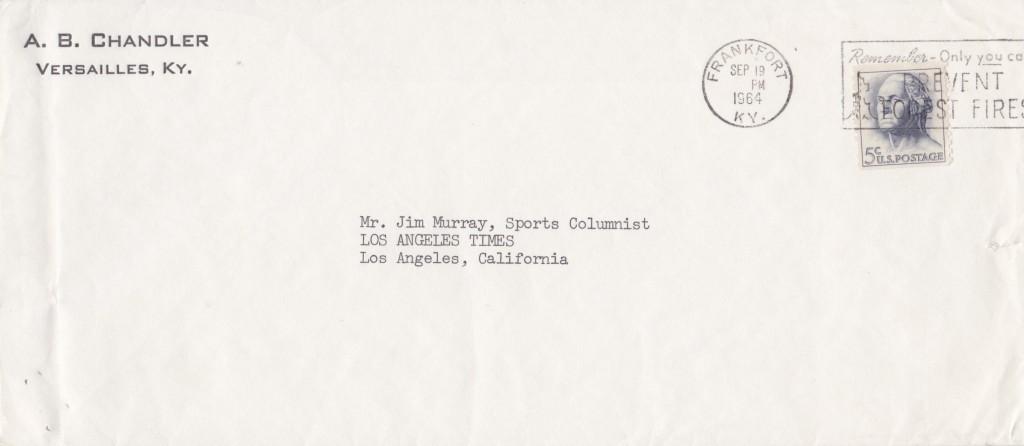
Envelope addressed to Ford Frick Award winner Jim Murray
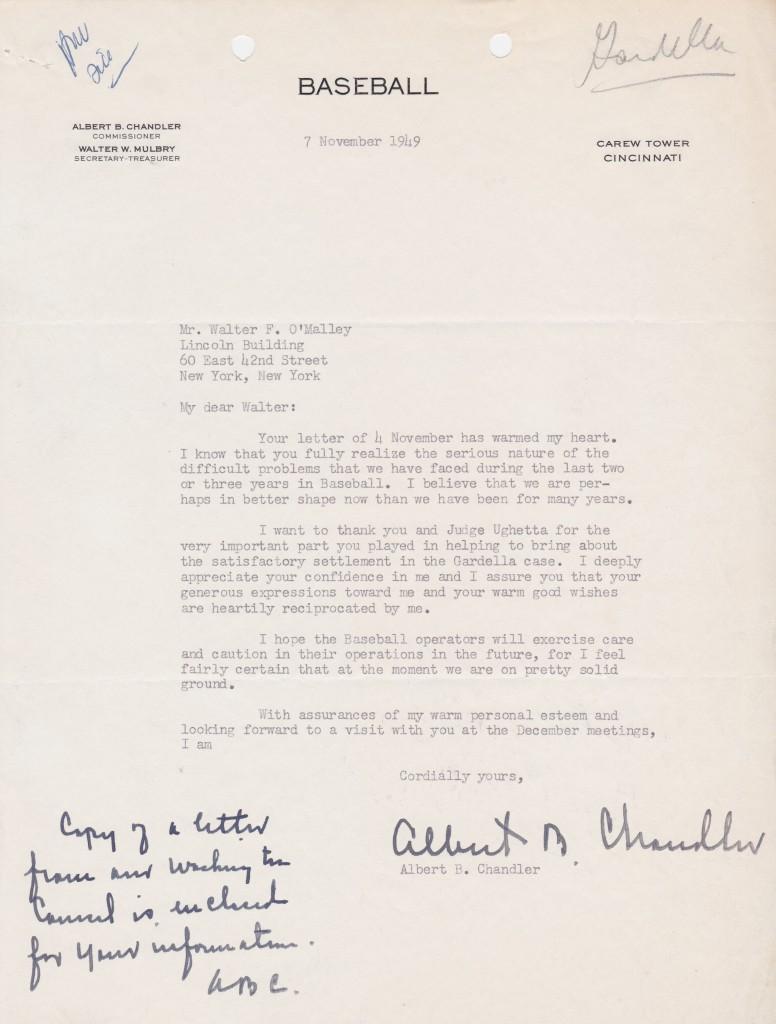
Chandler letter to Dodger owner Walter O'Malley about the Mexican League jumper Danny Gardella
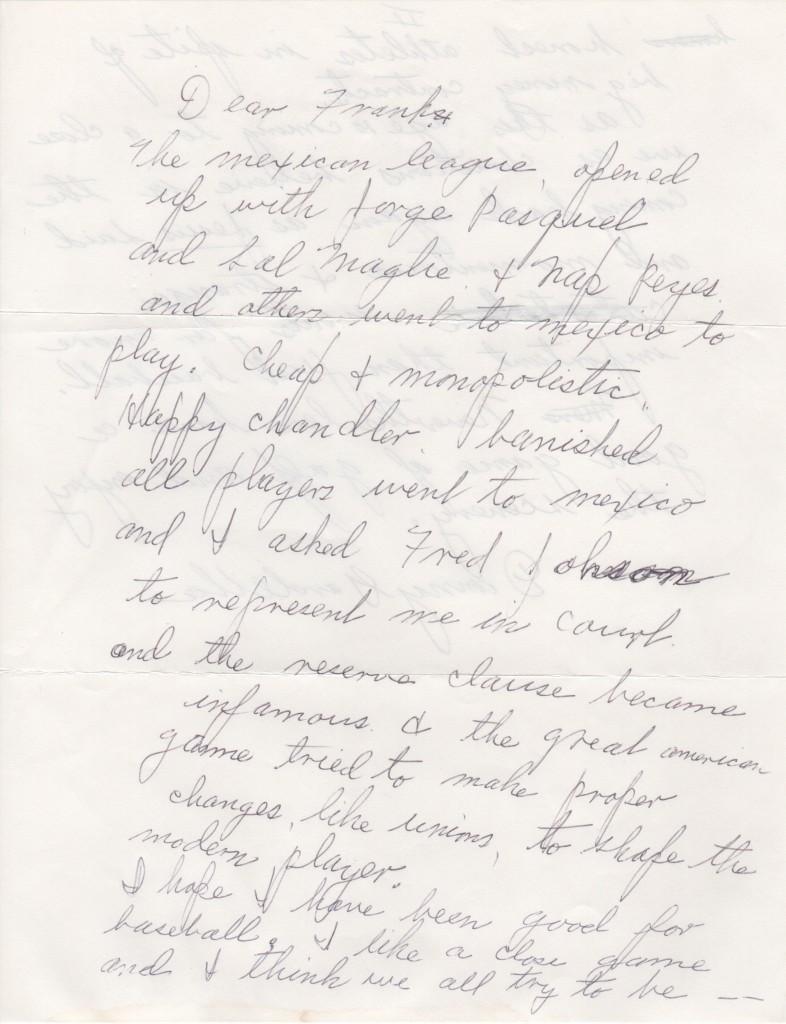
Mexican League jumper Danny Gardella writes about Chandler
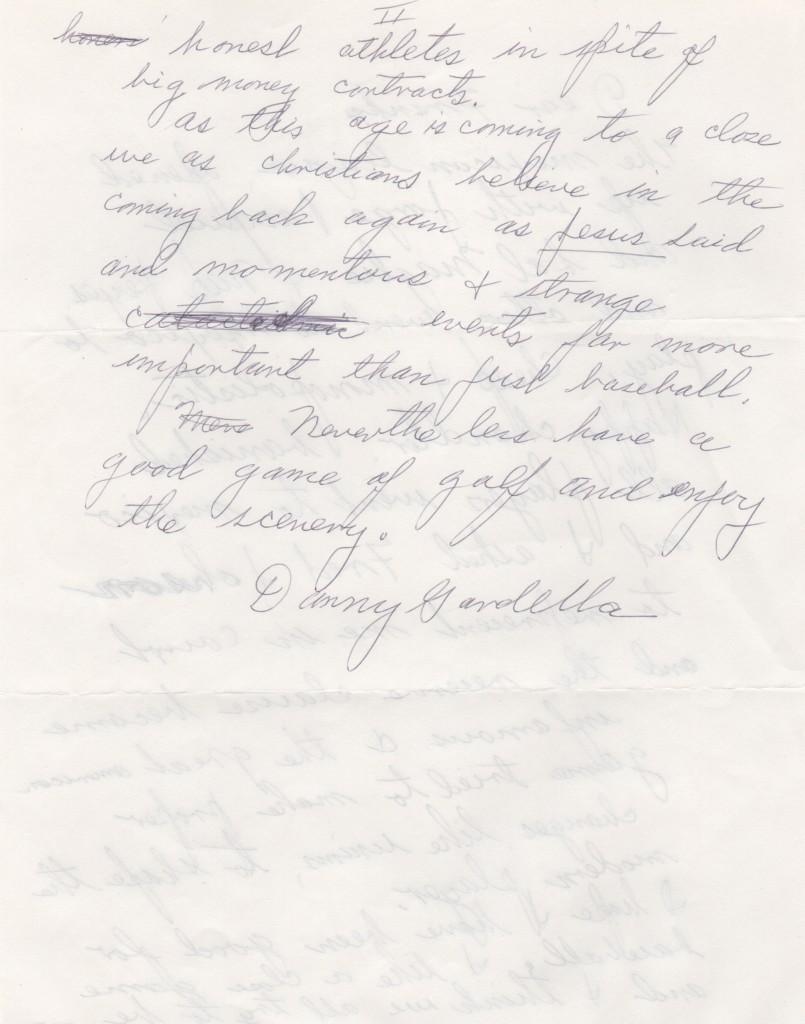
Page two of Gardella's letter about the Mexican League
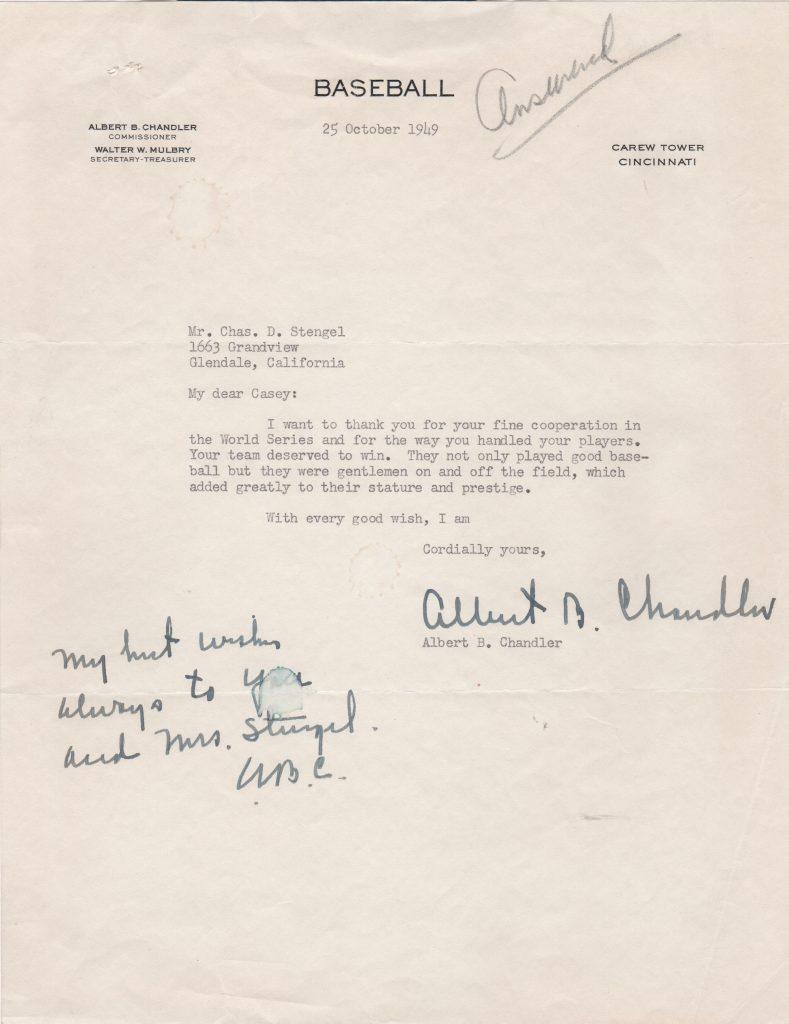
Commissioner Chandler congratulates Casey Stengel on first championship
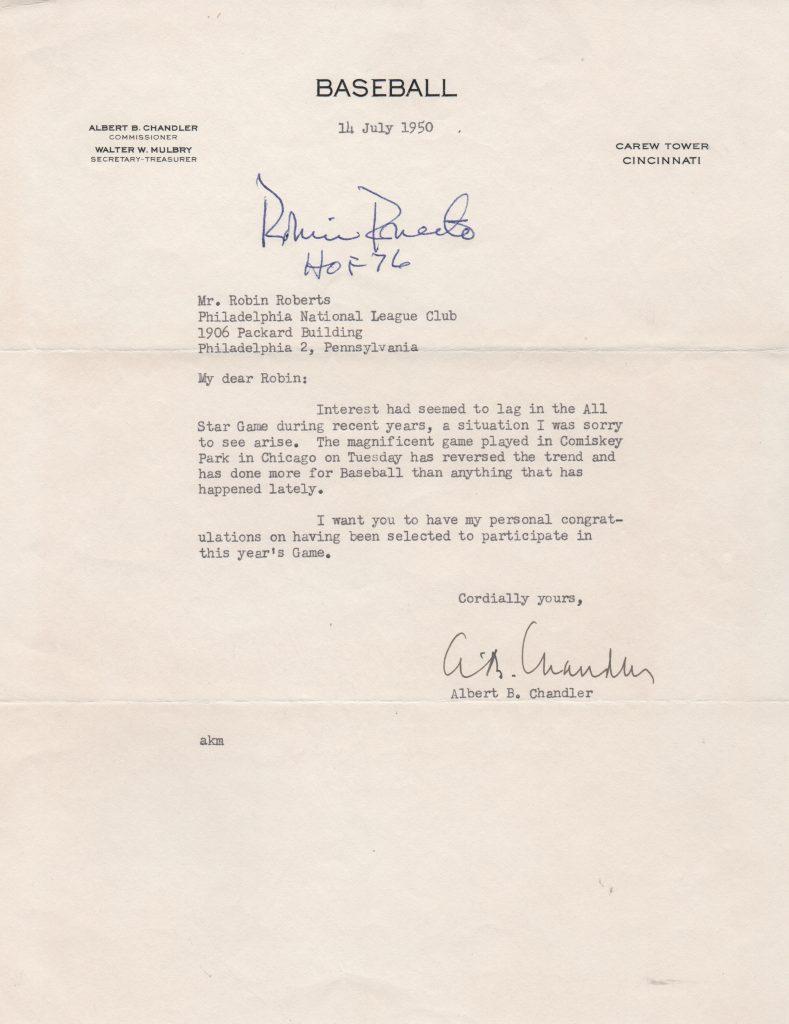
Chandler writes to Robin Roberts to congratulate him on the 1950 All Star game
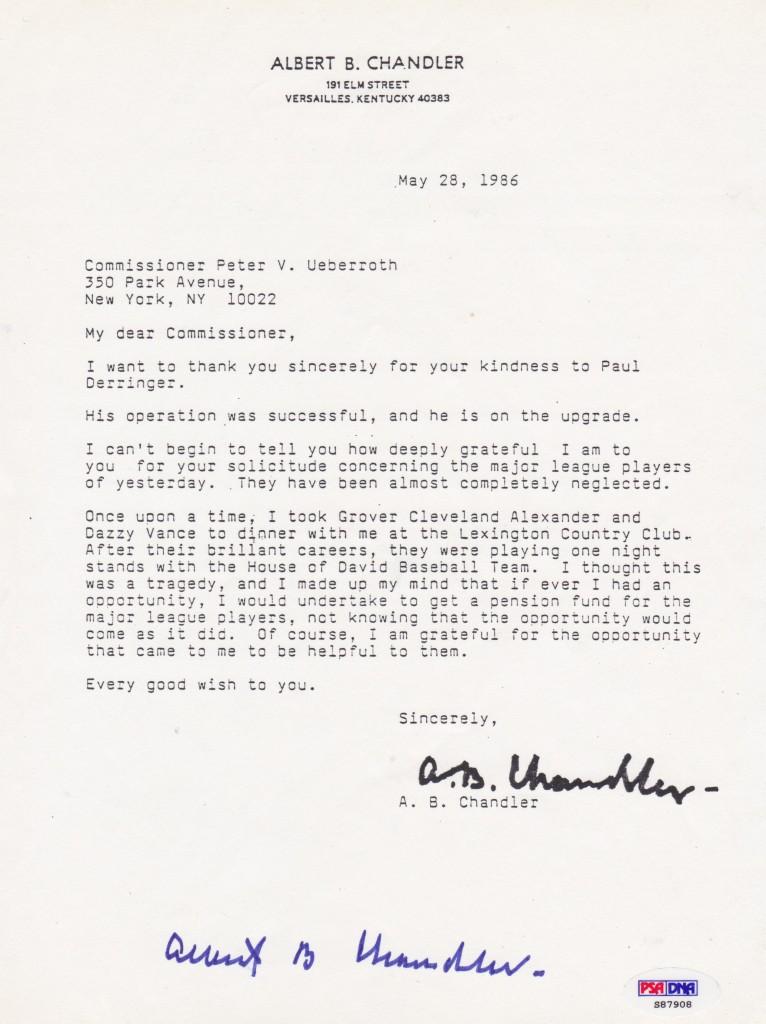
One commissioner to another: Chandler writes to Peter Ueberroth about pensions for the "major leaguers of yesterday"
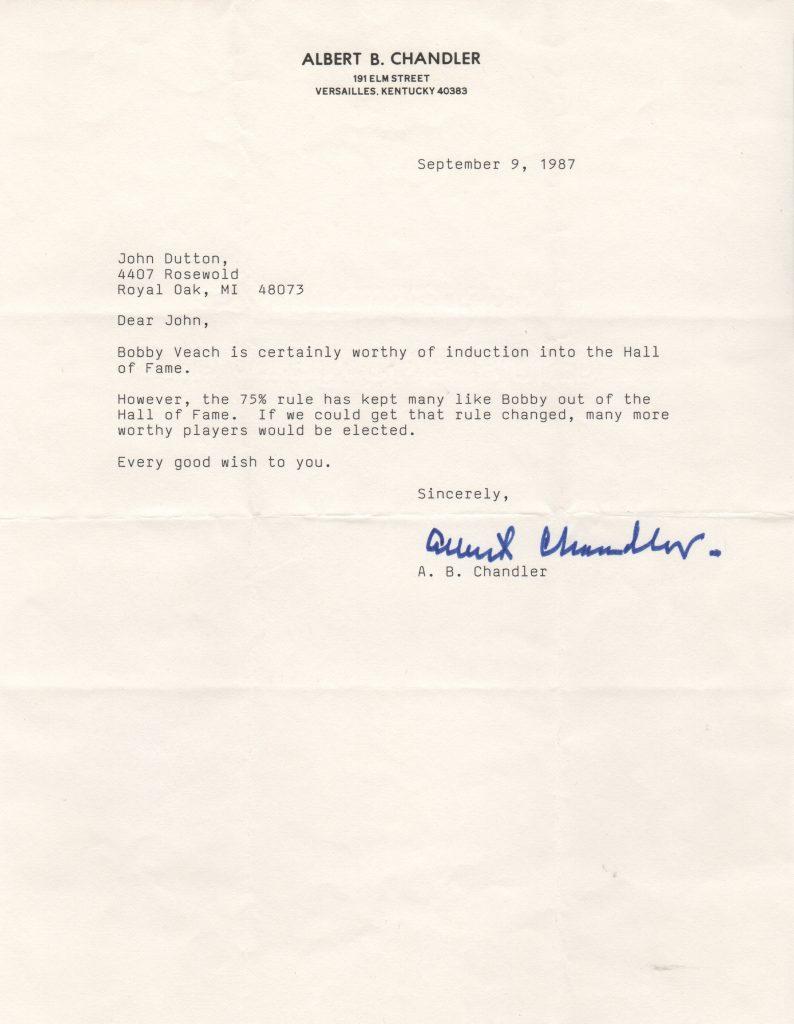
Happy Chandler says Bobby Veach is worthy of induction
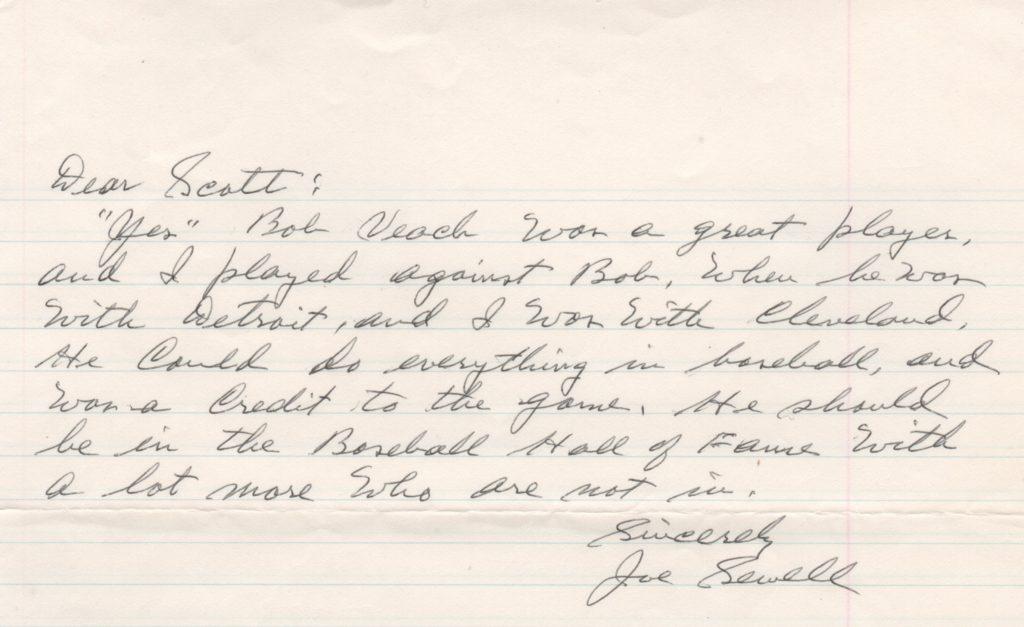
Hall of Famer Joe Sewell agrees with Chandler about Veach
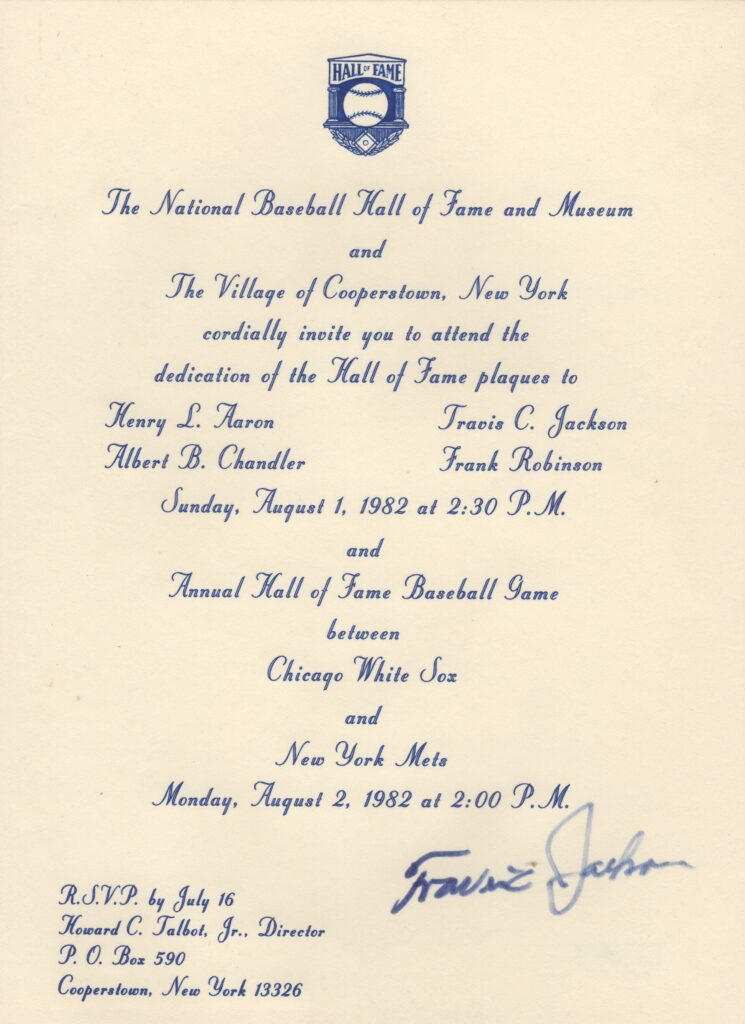
Albert "Happy" Chandler was inducted into the Hall of Fame on August 1, 1982
